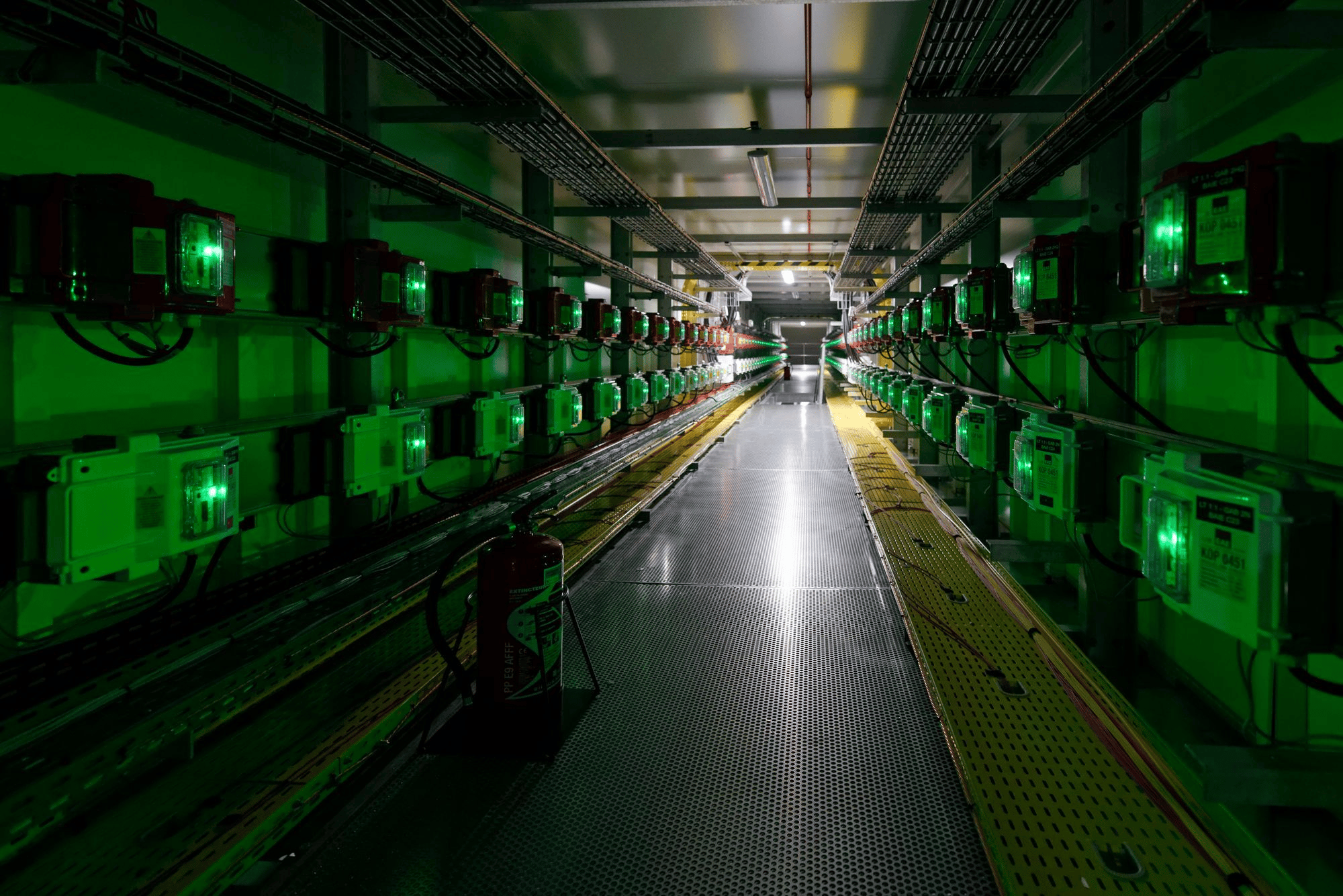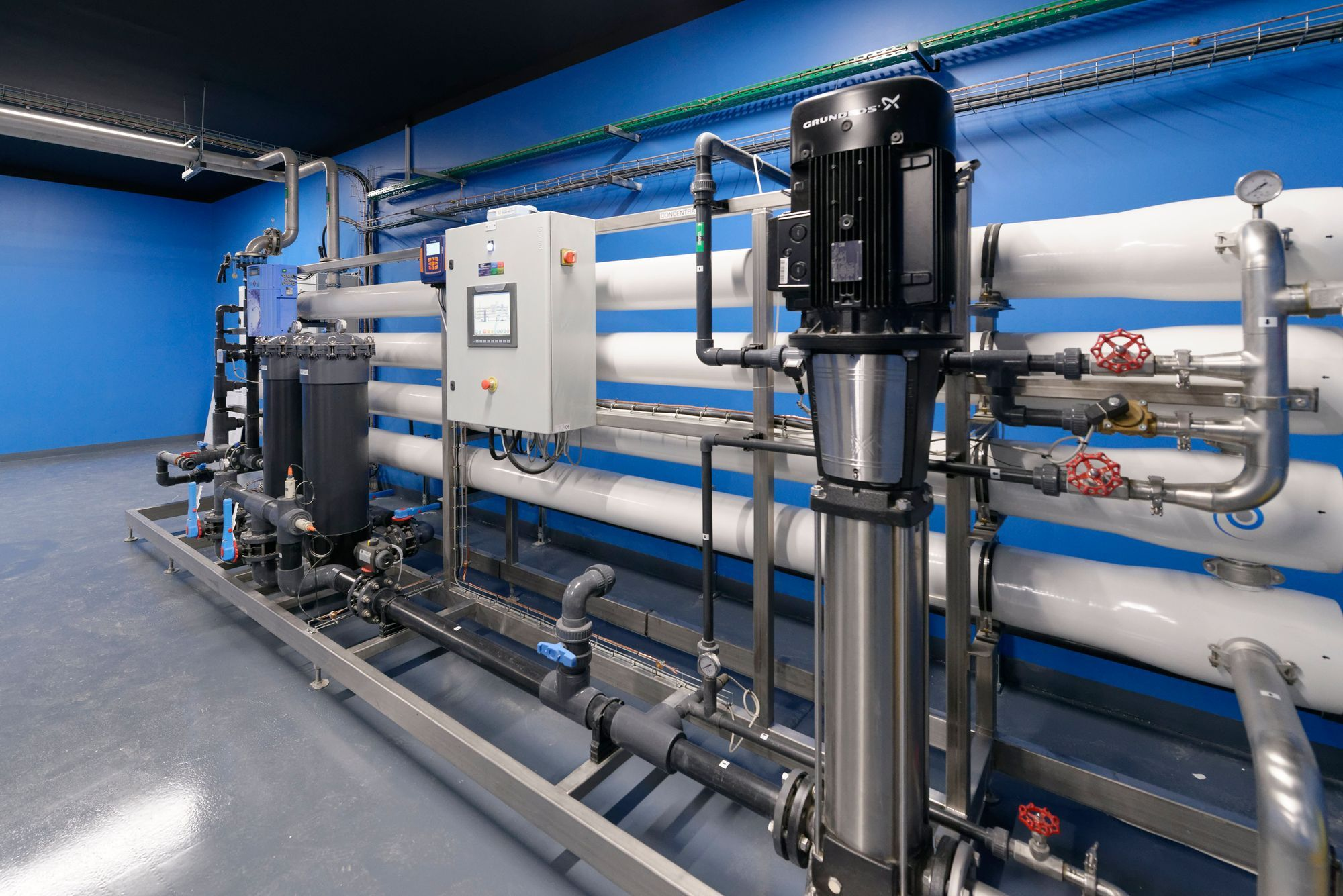Scaleway’s vision of the future is not clouded - we need environmental policies which take into account the human cost of our digital future

Proposed French legislation targets the digital sector’s environmental footprint, and as such would specifically impact data centers amongst other key infrastructure of this sector (1).
At the start of October, the French government put forward a bill demonstrating a desire to merge the two main transformative forces of the 21st century - the digital sector and the environment. They highlighted, in particular, the need for data centers which consume less energy.
At the same time, the European Commission continued on to the next step of its roadmap by presenting it’s study on “Energy-efficient Cloud Computing Technologies and Policies for an Eco-friendly Cloud Market” which aims at making data centers carbon neutral by 2030.
 _Adiabatic: a cooling system using unique water treatment technologies and giving one of the lowest WUE scores in the sector_
Scaleway, the second largest European cloud services provider has been managing data centers for over 20 years, and did not wait for this bill to be put forward to start taking significant action in this area. **A cloud that makes sense** is a cloud which first and foremost respects both the environment and the society in which it is scaling. At Scaleway, we could not be more aware of this, because as a key building block for a digital economy, we are responsible for the environmental impact of the entire sector.
Contrary to the predictions of analysts, energy consumption has not increased proportionally to the increase in data center activities globally.
The environmental impact of data centers has come under public scrutiny for several years now, especially with regard to the role they play in the volume of electrical and electronic waste as well as their carbon footprints. However, the boom in data centers also corresponds to the centralization of activities which used to be scattered across companies and the homes of private individuals. As such, the aim is not to increase the consumption of energy, water and electrical and electronic equipment, but rather to entrust their management to experts from now on.
In figures:
- in 2019, data centers represented 14% of the digital sector’s carbon footprint in France (2)
- data centers represented 0.08% of global electricity consumption in 2019 (3)
- the energy consumption of data centers has remained stable since 2015 despite traffic tripling and data center usage nearly doubling (4)
- thanks to the democratization of hyperscale centers [...] the activities of data centers on a global level should double in the next 3 to 4 years (5)
Yet innovative solutions have been around for decades!
There is so much scope for innovation in this sector, and not just any innovation, innovation that makes sense. It’s up to all of us as customers, and digital stakeholders, to make these changes.
The aim is not to suggest that data center experts are philanthropists. Each financial stakeholder has a primary goal which, in this case, aligns with our environmentally conscious objectives - profitability and as such reduced resource usage. The main expenses items in our industry are energy, water and electrical and electronic equipment.

Adiabatic: replacing air conditioning with the latest technology that combines internal and exterior air in order to keep the temperature stable and optimal for the equipment belonging both to us and our customers
Scaleway stands out
For Scaleway, powering data centers with solely renewable energy is a given. Therefore, as we are well aware of the need to ensure our carbon footprint is as low as possible, we have patented a data center cooling system which has one of the lowest PUE (Power Usage effectiveness) and WUE (Water Usage Effectiveness) scores in the world.
Our adiabatic system defies market practices such as cooling towers used to cool data centers which waste millions of cubic metres of drinking water, a process that is characterized by considerable environmental and health risks.
We believe that numbers speak louder than words, and this is why we were the first cloud infrastructure provider worldwide to implement the Real Data Center Efficiency measure which will be communicated for all of our data centers on an annual basis. Scaleway's approach consists in combining the PUE and the WUE, to relate them to each other and to the actual use of each in data centers. The rDCE is measured in megawatt hours (MWh), and used to weight the PUE and the WUE measurements in relation to distributed uses, not in relation to the most efficient datacenter, which would be too easy and misleading. The average of the two is taken to calculate the real Data Center Efficiency.This new weighted indicator is an objective measurement which allows customers to choose their suppliers whilst being mindful of environmental impacts.

Committed to sustainable data centers
Scaleway is committed to creating a restorative and regenerative circular economy through meaningful partnerships
Our operational teams aim to maximise the usage of our equipment. Rather than just three to five years (the average lifespan of a computer in a company (6)), the idea is to push equipment to its maximum usage whilst ensuring the quality of the services customers receive. Therefore, we not only develop software, but also circular logistics and maintenance methods which allow us to use our equipment for up to 10 years.
The role transport plays cannot be neglected from data center’s environmental commitments
We can and want to drive action even further, but we cannot do it alone. The time has come for us to work together and build common actions for a better future. We need the support of states, transport service providers, and energy and equipment suppliers to make further, continuous, improvements to our environmental impact, and to become carbon neutral. In fact, no matter how much we want to improve, we partly rely on the energy market which, outside of France, is far too dependent on fossil fuels and their impact. We rely on transport providers who use these same energy sources extensively or who have not yet sufficiently developed alternatives. Trains for example (transporting one ton by train emits four times less carbon than road freight, and three times less than a container ship (7)), are not yet able to meet all our needs.
Going beyond environmental responsibilities, Scaleway makes sense on a human level
A data center’s responsibility does not stop there. As a key pillar of the digital world, we have a considerable responsibility to society itself. It’s up to us to ensure that the new economy will be fair for women, that we give young people a chance, and that persons with disabilities have a place so that together we can build a technological society which resembles us. Scaleway is working tirelessly toward this objective by participating in numerous initiatives such as 50 in tech, Startup Weekend Women, and Les Plombiers du numérique and through our startup program which provides support to our impressive French and European entrepreneurs. We place a lot of importance on working with inclusive, disability friendly companies, whenever we can. Also, all hardware that has faithfully served us for many years is given to Loxy for their dedicated internal reuse program.
It’s up to you to choose suppliers who adhere to your values
Yet, we must not forget, it is first and foremost the client who has the option, and thus the duty, to push suppliers in the right direction by demanding fundamental values such as respect for the environment, social integration and respect for rights and data.
Make demands, keep a lookout for companies which exceed quality requirements that consume resources, ensure data is sovereign. Seek assurance that these are the purchasers changing the market as they are the ones that either support or push aside the responsible companies fighting for our digital future.
(1) https://www.ecologie.gouv.fr/colloque-numerique-et-environnement-faisons-converger-transitions
(2) http://www.senat.fr/rap/r19-555/r19-55511.html
(3) According to the International Energy Agency
(4) https://www.iea.org/commentaries/data-centres-and-energy-from-global-headlines-to-local-headaches
(5) https://www.lebigdata.fr/impact-data-centers-environnement-surestime
(6) According to Gartner (2016)
(7) According to UNIFE & CER (2016)
Albane Bruyas